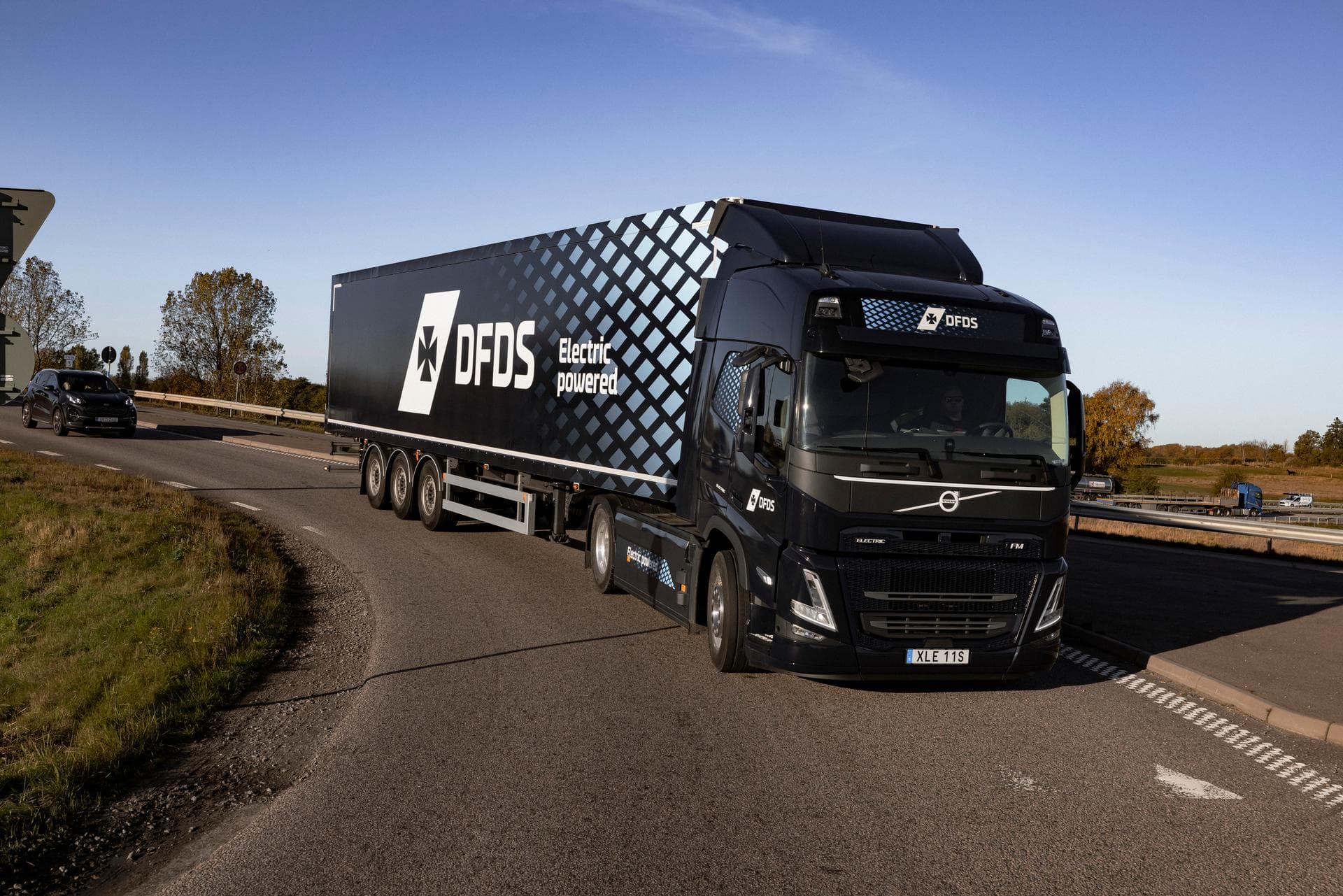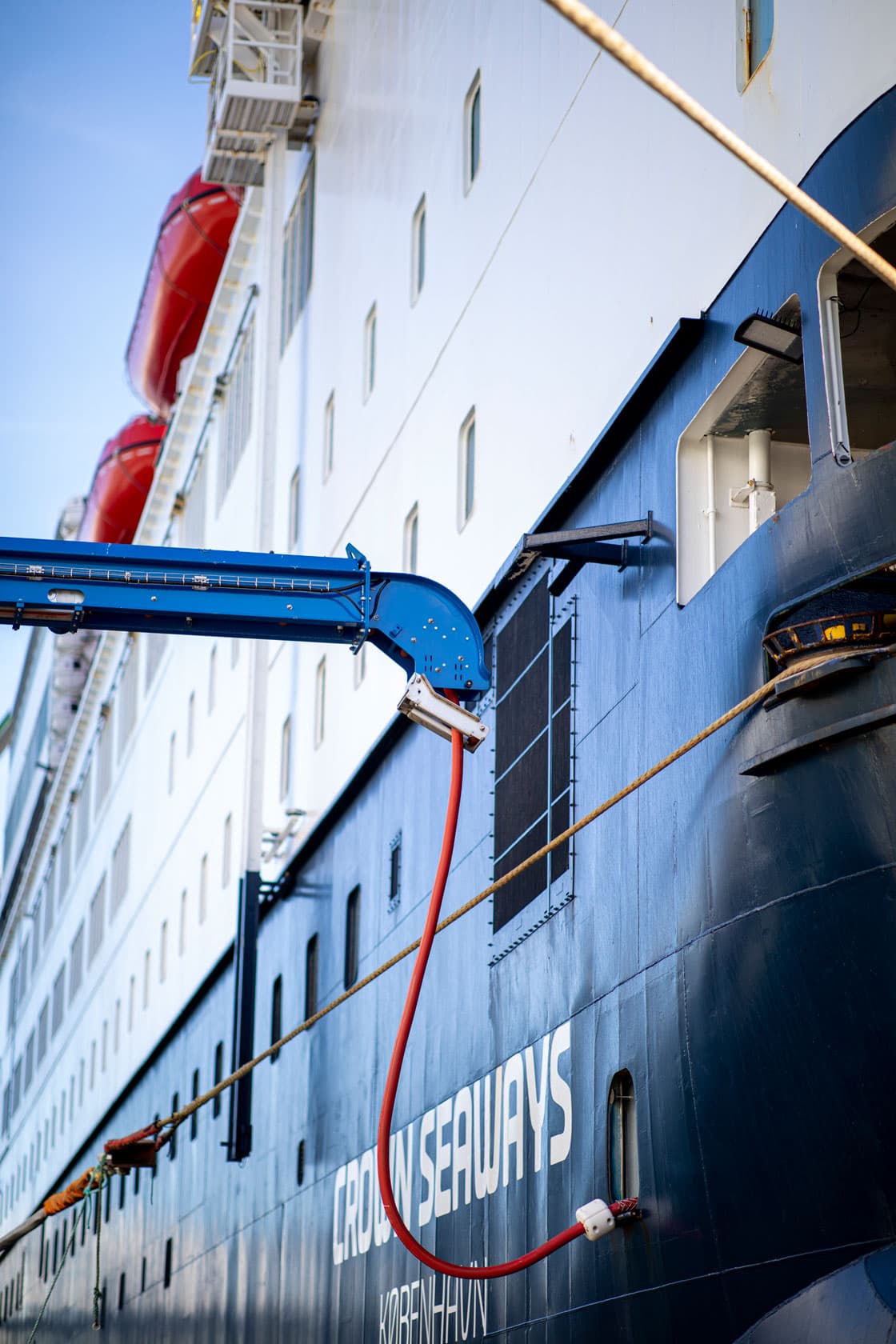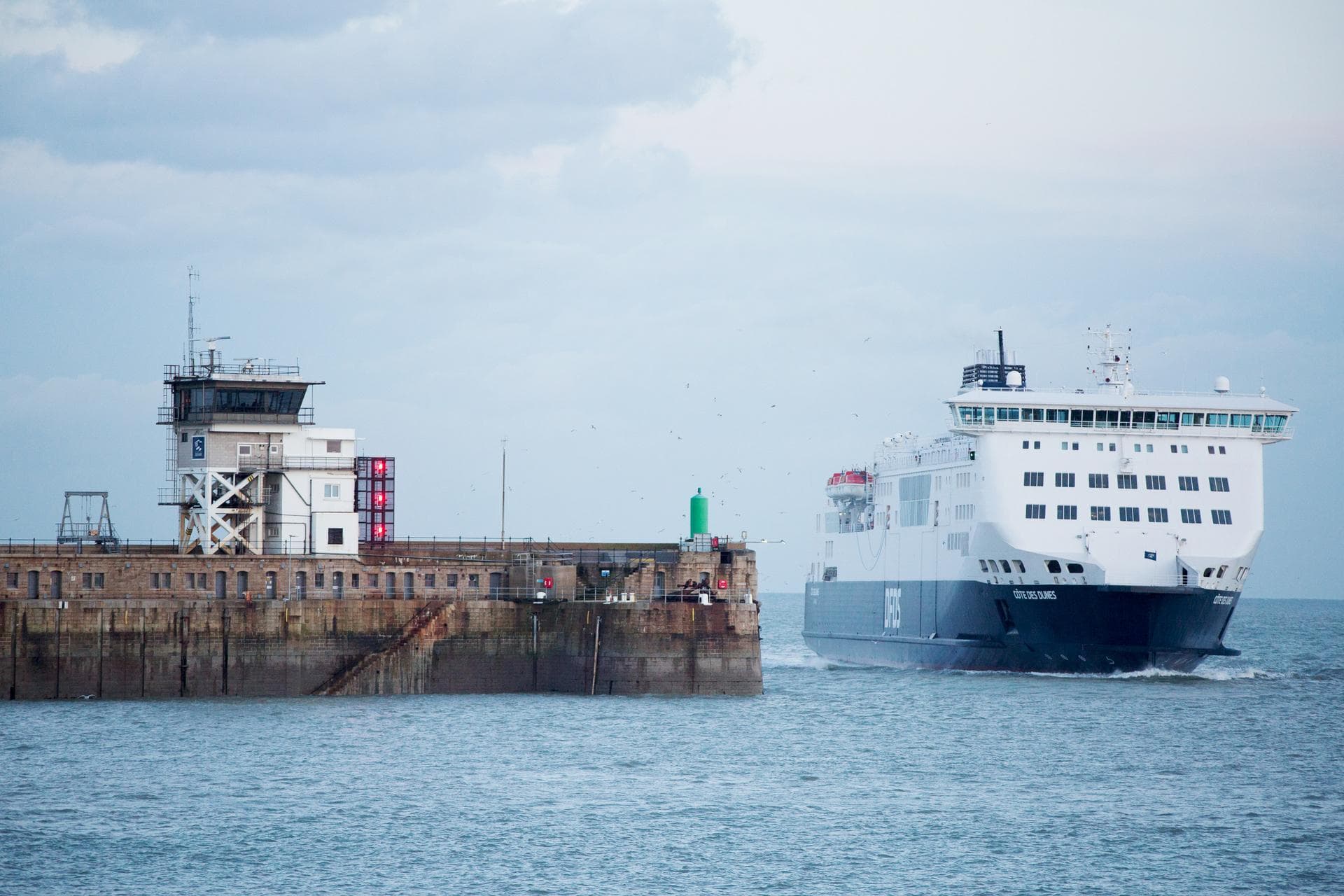Decarbonisation on land

Decarbonisation pathway to 2030 for road transport
Our target for road transport and land activity is an ambitious 75% intensity reduction in well-to-wheel (WtW) CO2e by 2030. There is a high potential for emissions reductions by optimising our operations and increasing efficiency. This can be done through improved cargo planning (reducing waiting time and grouping cargo better); increase loading capacity, more efficient and aerodynamic vehicles, driver behaviour and better route planning. But efficiency alone will only get us part of the way. We need to reduce our reliance on fossil fuels, and our pathway for road transport is already off to a good start. During the 2020s, we are incrementally introducing electric heavy-duty trucks into our owned fleet, and as of 2025, we have one of the largest heavy-duty etruck fleets in Europe. For routes that we cannot yet electrify, we use HVO (Hydrotreated Vegetable Oil) as a transition fuel in existing trucks, and we are working on several opportunities to pilot hydrogen fuel cell electric trucks. By 2030, we expect that only a small share of our trucks will be diesel-fuelled.
Electrification is key
Moving to electricity for road, land, warehousing and terminal activity is a central focus of our decarbonisation plans.
Most of our activities converge at terminals, where we plan to start producing significant amounts of renewable electricity. This way we can cover our own consumption needs, contribute to the available energy pool in the area, while reducing our overall emissions.
2030 pathway for terminals
Key road and land projects
Read more here about the key projects that will get us to our goal of 75% reduction in Well-to-Wheel CO2e by 2030. A selection:
DFDS intensifies decarbonisation efforts with 100 additional e-trucks
Coop and DFDS join forces to decarbonise heavy transport
CPH Pride, DFDS and Volvo come together for a more sustainable Pride!

Decarbonisation techniques
Our pathway to net-zero consists of the adoption and implementation of a combination of four key techniques that either reduce energy usage or replace fossil-based energy sources with renewable sources.

Decarbonisation FAQs
Do you have questions about our decarbonisation strategy or how we measure results? Find the most frequently asked questions and answers here.